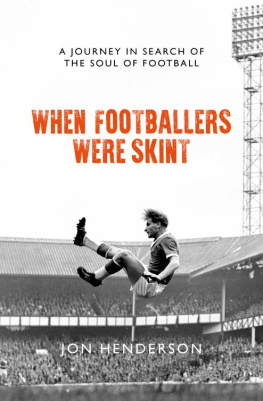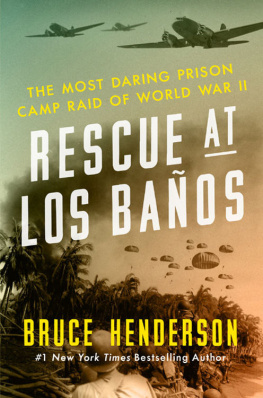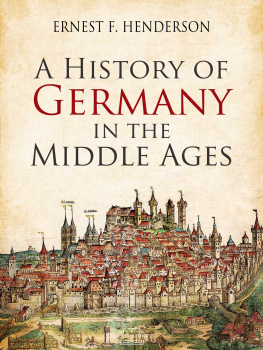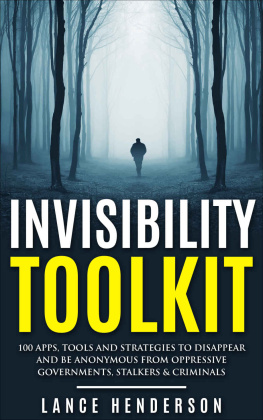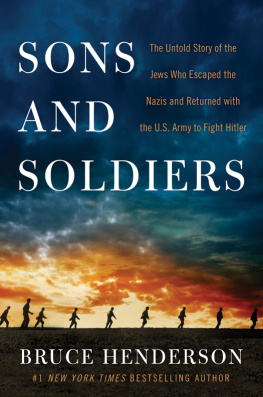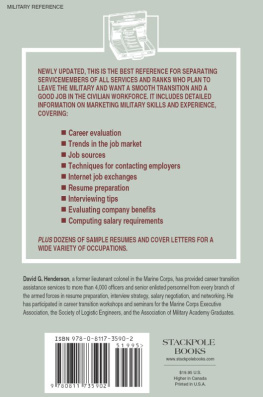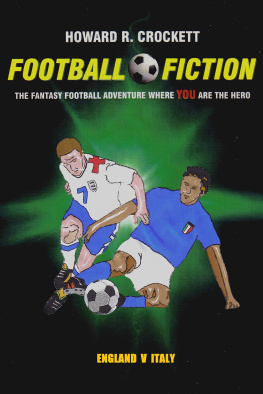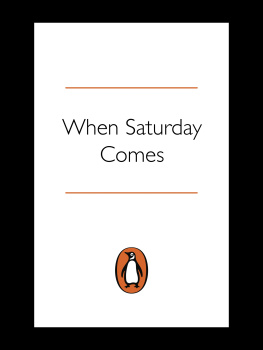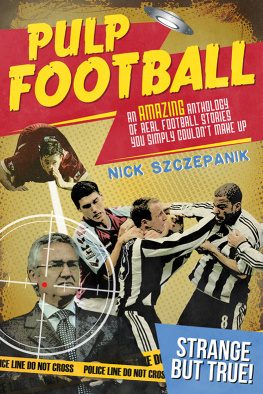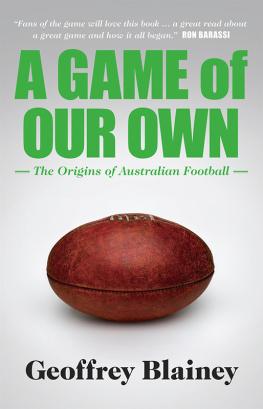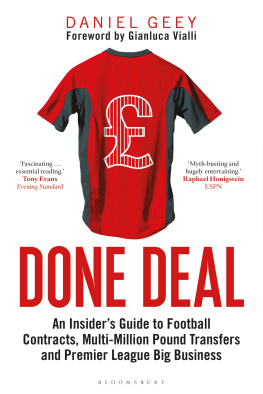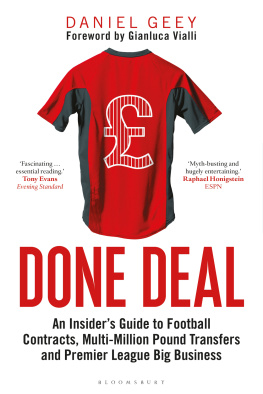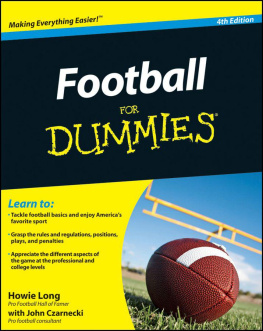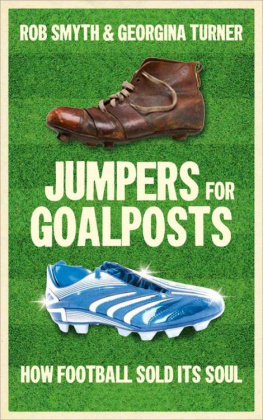T his book is dedicated to Jimmy Hill.
As chairman of the Professional Footballers Association (PFA), Hill, a Londoner born in 1928, did more than any other player to bring an end to the maximum wage in January 1961, by which stage it was 20 a week.
I knew him reasonably well in his later years, having a number of conversations with him when I was a sports journalist. I interviewed him for a profile in The Observer at a time when he was the countrys most recognisable pundit on the game.
Also, I asked him one day if he might give away the awards after a fundraising event for a medical charity. Maybe youd say a few words, I said. He came, he charmed, he spoke movingly, alluding briefly to his own mid-life medical problems that he had overcome. He waved aside the charitys offer to pay for a taxi. But he did accept my offer to drop him off at Victoria Station.
I have a last image of him cheerily stepping out of the car into a windswept night. He had given freely of his services and turned what might have been a mundane evening into something a little special.
His views as a television pundit are what most people remember him for, overshadowing his relatively modest career as a player and his far greater legacy of having footballs grossly unfair wage cap abolished.
As an innovative manager of Coventry City, and then as a media figure, he continued to have a considerable influence on the games development.
I would have liked to have interviewed him for this book in his capacity as a key figure in its narrative, to whom todays multimillionaire players owe so much and, I suspect, know very little of. Sadly, his failing health meant I was unable to do so.
Jimmy Hill died aged eighty-seven a week before Christmas in 2015.
I need to understand the past. It illuminates the present.
T hey played all or some of their Football League careers in the era up to 1961 when wages were capped, never rising higher than 20 a week.
Colin Collindridge (b. 15 November 1920) Sheffield United 193850, Nottingham Forest 195054, Coventry City 195456
Johnny Paton (b. 2 April 1923, d. 2 October 2015) Celtic 194249, Chelsea 194647, Brentford 194952, Watford 195255
Jackie Sewell (b. 24 January 1927, d. 26 September 2016) Notts County 194651, Sheffield Wednesday 195155, Aston Villa 195559, Hull City 195961
Bill Slater (b. 29 April 1927) Blackpool 194451, Brentford 195152 & 196364, Wolverhampton Wanderers 195263
Frank OFarrell (b. 9 October 1927) West Ham United 194856, Preston North End 195661, Manchester United (manager) 197172
Rex Adams (b. 13 February 1928, d. 14 January 2014) Blackpool 194851, Oldham Athletic 195354
Tony McNamara (b. 3 October 1929, d. 30 May 2015) Everton 194757, Liverpool 195758, Crewe Alexandra 1958, Bury 195859
Tommy Banks (b. 10 November 1929) Bolton Wanderers 194761
Roy Wood (b. 16 October 1930) New Brighton 1951, Leeds United 195260
Bill Leivers (b. 29 January 1932) Chesterfield 194853, Manchester City 195364, Doncaster Rovers 196466
Stan Anderson (b. 27 February 1933) Sunderland 195263, Newcastle United 196365, Middlesbrough 196566
Peter McParland (b. 25 April 1934) Aston Villa 195262, Wolverhampton Wanderers 196263, Plymouth Argyle 196364
Don Ratcliffe (13 November 1934, d. 19 October 2014) Stoke City 195463, Middlesbrough 196366, Darlington 196667, Crewe Alexandra 196769
Cliff Jones (b. 7 February 1935) Swansea Town 195258, Tottenham Hotspur 195868, Fulham 196870
Terry Allcock (b. 10 December 1935) Bolton Wanderers 195358, Norwich City 195869
George Eastham (b. 23 September 1936) Newcastle United 195660, Arsenal 196066, Stoke City 196673
Dave Whelan (b. 24 November 1936) Blackburn Rovers 195660, Crewe Alexandra 196266
Gordon Milne (b. 29 March 1937) Preston North End 195660, Liverpool 196067, Blackpool 196770
Alec Jackson (b. 29 May 1937) West Bromwich Albion 195464, Birmingham City 196467, Walsall 196768
Howard Riley (b. 18 August 1938) Leicester City 195565, Walsall 196566, Atlanta Chiefs 1967, Barrow 196869
Alex Dawson (b. 21 February 1940) Manchester United 195761, Preston North End 196167, Bury 196768, Brighton & Hove Albion 196871
Warwick Rimmer (b. 1 March 1941) Bolton Wanderers 196074, Crewe Alexandra 197479
Terry Neill (b. 8 May 1942) Arsenal 195970, Hull City 197073
H ere, I want a word with you.
The youth, his face freshened by a raw easterly wind, answered his trainers call.
Stan Anderson understood that when Tommy Urwin barked a command after practice, you did as you were told.
Urwin was, though, for all his bluffness, a kindly man. His charitable nature reposed in the gentle upward curves of his mouth whenever he smiled, which was frequently. He was in his mid-fifties, having been born at the end of the nineteenth century, and came from the historic mining village of Haswell in Durham where people looked out for each other.
He had played as a forward for the north-easts three great clubs starting off with Middlesbrough and Newcastle before making his debut for Sunderland at the age of nearly forty and gained four caps for England in the 1920s. Now he trained the Sunderland B team and wanted the best for his callow charges.
His abrupt summons to Anderson, the most promising of the clubs young recruits, who was coming up to seventeen, was at once commanding and avuncular.
I know you and your father are going up to see George Crow about turning professional, Urwin said. Im telling you, ask for the biggest money you can get.
Crow, a long-time servant of Sunderland AFC, was the club secretary but had also held other posts. Twelve years ago, in 1939, despite having no background in football, he had stood in as manager for three weeks after John Cochrane resigned. He would do so again in 1964 when Alan Brown quit the club.
How much is that, Tom? Anderson asked.
Hell probably offer you three quid a week, maybe four. Ask for seven.
Anderson also came from a mining community, Horden, not far from Sunderland, where his father, Jim, worked underground until the chest problems that were the coal miners lot caught up with him.
When his health failed, Jim Anderson was found a job working above ground on what they called the Horden Aerial Flight. This was a ropeway suspended between pylons that carried coal waste to be dumped out in the North Sea. Not far enough out, though, to prevent the local beaches from wearing a heavy coat of black coal dust. For a full weeks work, Anderson Sr received no more than 8.
Are you sure, Tom?
Anderson, a shy lad, did not relish the prospect of having to negotiate with Crow. Nobody did. Crow was small and grey-haired, with a face distinguished only by its pallor. If he had a lighter side, he regarded it as a vice to be exercised in private.
Yeah, youll get it, Urwin assured him.
OK, Tom.
But dont tell anyone I told you.
Full of trepidation, despite having his father beside him, Stan Anderson knocked on the door of George Crows office.
Crow greeted them with as much warmth as he could muster. Were going to sign you on as a full-time pro, Stanley, he said.
Thank you very much.
Were prepared to offer you four pounds a week.
Anderson, who had shared Urwins advice with the family, watched now as his father cleared his throat and prepared to speak. Anderson Sr was only marginally more worldly than his son, who held his breath waiting for the reply.
Oh no, Mr Crow, he said, but still could not quite find the courage to ask for the full, outrageous amount Urwin had suggested, I think Stan is worth six pounds a week. Young Anderson looked on as George Crow froze, his face suddenly a rictus of incredulity. The usually phlegmatic secretary was struggling to keep his composure. For a moment Anderson thought Crow was going to faint.

